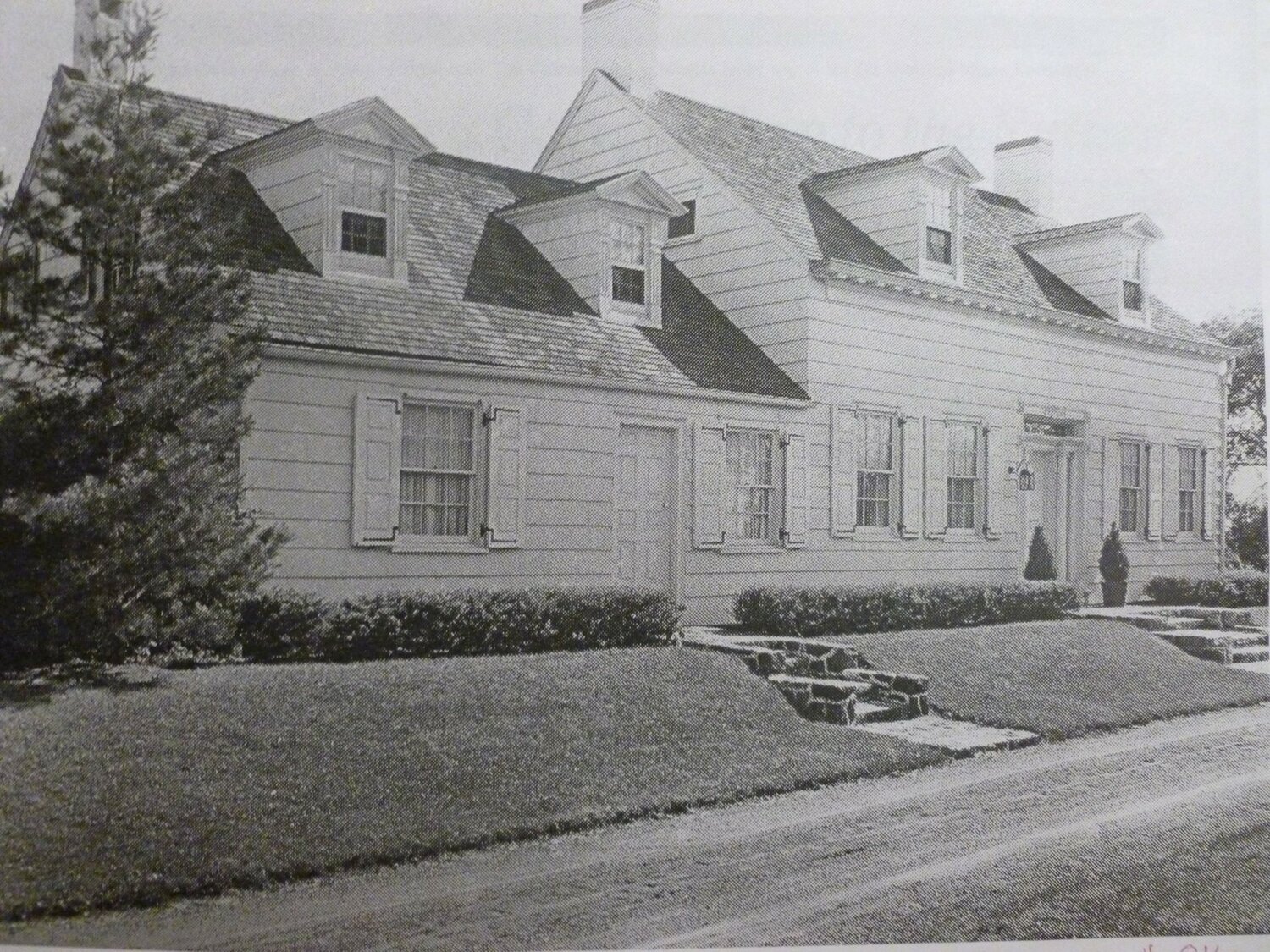Can sites be saved from W.H. Bedell House's fate?
In 1982, the Historic Bedell House was transplanted from its home of West Hempstead to Old Bethpage Village Restoration, with promises of renovation. In 2017 it was demolished. That’s exactly the kind of “demolition by neglect” from which the Franklin Square Historical Society is trying to protect its own historical sites.
The Bedell House, which dated back to 1644, was the “West Hempstead showpiece” of historical houses, Lesley McAvoy, president of the West Hempstead Historical Society, said. Its planned renovations were put off for years, then decades — and then it was too late.
“It was let go for so long it became impossible to renovate in a cost-effective manner,” McAvoy said.
Now the Franklin Square Historical Society, working with the Franklin Square Civic Association, is worried that the same thing will happen to the Franklin Theater.
The concerns in Franklin Square stemmed from worries of possible disrepair in the Franklin Theater, an Art Deco structure designed in 1933 by architect Richard Thomas Short that was designated a historical landmark by the Town of Hempstead in 2019. It is one of 65 historical landmarks.
The historical society and the civic association have expressed concerns about the town’s Landmarks Ordinance and an apparent lack of protection for historic buildings throughout the town.
Katherine Tarascio, recording secretary for the civic association, brought her concerns to the Town Board in early June. She believes that the town should include a provision in the ordinance that would prevent building owners from allowing a historic site’s demise by neglecting it.
“While the town can, and has, spent significant money protecting the designated properties, as with the Franklin Theatre,” Tarascio told the board at its meeting on June 4, “(it) has no ability to stop a property owner from allowing, or even hastening, a building’s demise by neglecting it.”
The theater’s destruction would be a loss to Franklin Square, as the Bedell House’s was to West Hempstead. Of 15 historical houses in West Hempstead, most of them dating back to the 1800s, only the George Van Deusen estate, on the corner of Hempstead and Cornwell avenues, still stands. The others mostly became private entities. One is now a KFC. Another is a White Castle. The neglect and subsequent demolition of the Bedell House saw the oldest home in West Hempstead torn down.
Several towns and villages across Long Island have provisions that include mandatory “regular maintenance” of designated historical sites in their preservation ordinances to prevent such cases.
In the Village of Bellerose, owners of historical sites “shall not permit the property to fall into a state of disrepair so as to cause, in the judgment of the Historic Preservation Board, a detrimental effect upon the character of the landmark or historic district.” Any property owner who fails to uphold a historic site’s maintenance there is required to restore the property and its appearance prior to the violation, enforceable by the village attorney.
“This serves to not only protect the property from becoming a case for hardship, but also protects the surrounding neighborhood from the fallout of dealing with such a neglected piece of real estate,” Tarascio said.
Historical sites can remain vacant for years, much like the Franklin Theater, whose doors have been closed since 2020. Tarascio reminded the Town Board that deserted and decaying buildings can pose structural risks to surrounding properties as well as safety hazards to bystanders, deter local investment as eyesores, invite squatters and depress nearby property values.
“Abandoned historic buildings left to ruin have the potential to be a catalyst for community breakdown,” Tarascio said. “These are things that a municipality should be working to protect against.”
She said she believed that including a “protection provision” in the town’s Landmarks Ordinance would help preserve Hempstead’s own historical sites, and that the absence of such a provision could be responsible for setting some "dangerous precedents.”
“Disgruntled property owners will continue to use this loophole to skirt the designation, and inevitably demolish a building that the municipality will have had no choice but to condemn,” Tarascio said. “But ‘demolition by neglect’ is not something that occurs overnight, and the cost of allowing it to happen has a ripple effect that can negatively impact a neighborhood for years.”
Hempstead’s current ordinance was adopted in 1983, and the absence of required regular maintenance in the document is something that members of the Franklin Square Historical Society and the civic association believe should be rectified. Tarascio advised that any addition or amendment to the current ordinance to close this “loophole” be made retroactive, to protect the town’s existing historic landmarks.
“If demolition by neglect is allowed to happen once, it will continue to happen,” she said.
“We lose stories,” McAvoy said. “We lose beauty. We lose consciousness of a way of life. We lose how the inventiveness of people has progressed throughout history. Unless you can see the past and then your place in it, it’s hard to envision the future.”
Town officials did not respond to a request for comment about the implementation of a provision protecting historic sites from demolition by neglect or disrepair.
— Additional reporting by Nicole Formisano.






